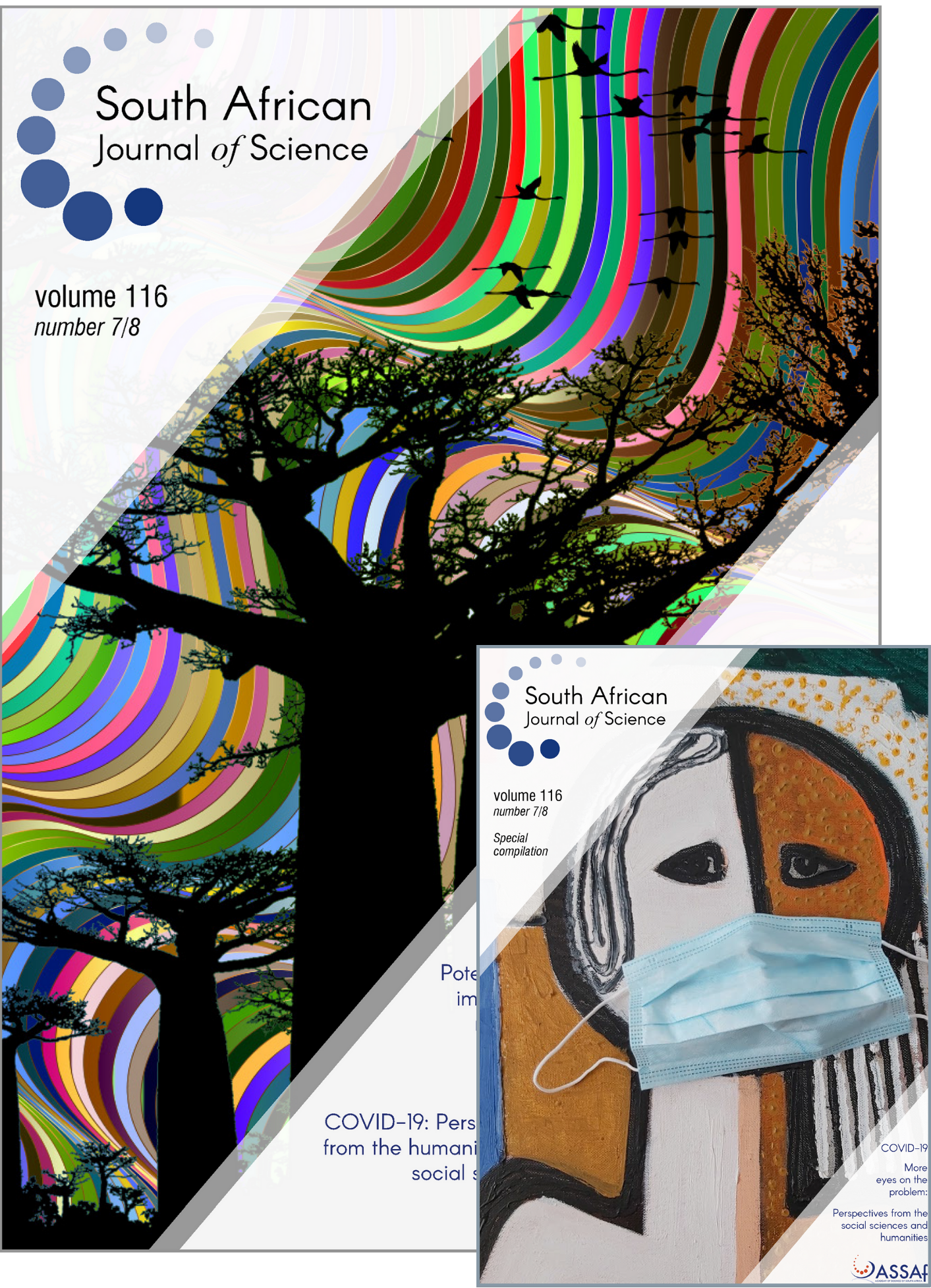Occurrence of pharmaceuticals in aquatic environments: A review and potential impacts in South Africa
DOI:
https://doi.org/10.17159/sajs.2020/5730Keywords:
water pollution, water systems, impact of pharmaceuticals, environmental pollutionAbstract
The carbon footprint of pharmaceuticals through manufacturing, distribution, the incineration of unwanted pharmaceuticals as well as the packaging of pharmaceutical waste is an emerging and enormous challenge. Pharmaceuticals are major contributors to water pollution in aquatic environments that include surface water and groundwater. These pollutants arise not only from waste products but also from pharmaceutical products that have not been properly disposed of. The continuous exposure to unspecified sub-therapeutic doses of antibiotics presents risks to humans and other animals. Due to their extensive use and incomplete elimination, antibiotics have been detected in various environmental waters. The persistence of antibiotics in the environment and chronic exposure of organisms to these chemical stressors has also proven to have ecotoxicological effects. The prevailing emergence of antimicrobial resistance amongst bacteria is an area of primary concern, especially with regard to the release of antibiotics into the environment. Resistance is the acquired ability of bacterial populations to render an antibiotic ineffective as a result of a change in bacterial DNA which occurs when bacteria are subjected to an antibiotic concentration that will not kill them. A sub-lethal concentration possibly exerts a selective pressure that can result in the development of antimicrobial resistance in bacteria. It is clear that there is a need for extensive research to improve regulations and guidance on pharmaceutical waste management, pharmaceutical take-back programmes and consumer awareness.
Significance:
- Pharmaceuticals are major contributors to water pollution in aquatic environments that include surface water and groundwater. This review examines the potential sources of pharmaceuticals in aquatic environments, their occurrence in South Africa, and public and environmental health implications posed by their presence. This information will provide a baseline for research and development to optimise water treatment technologies and to improve national, provincial, regional and municipal regulations and legislation.
Published
Issue
Section
License

All articles are published under a Creative Commons Attribution 4.0 International Licence
Copyright is retained by the authors. Readers are welcome to reproduce, share and adapt the content without permission provided the source is attributed.
Disclaimer: The publisher and editors accept no responsibility for statements made by the authors
How to Cite
- Abstract 2548
- PDF 2638
- EPUB 224
- XML 374












.png)